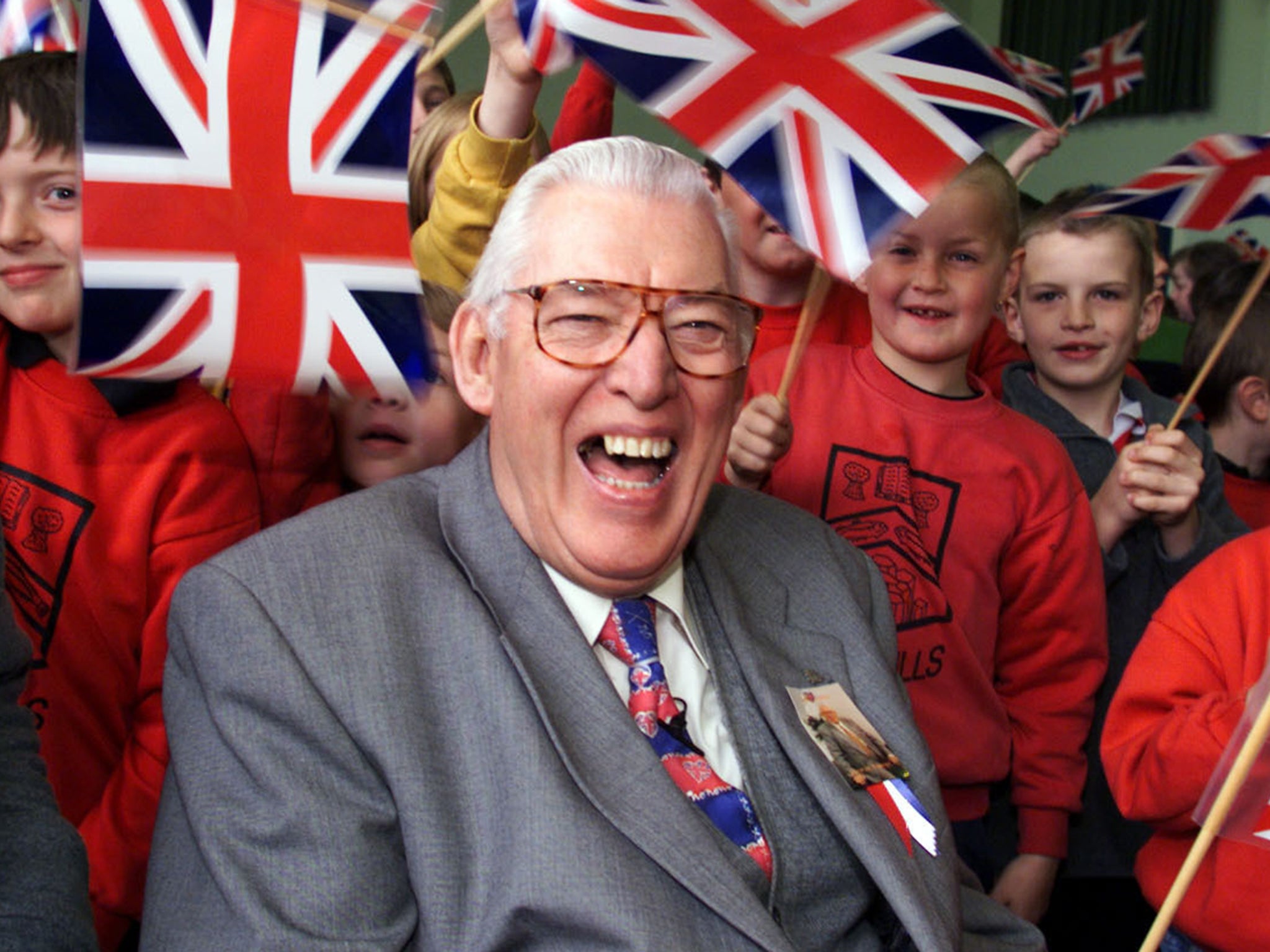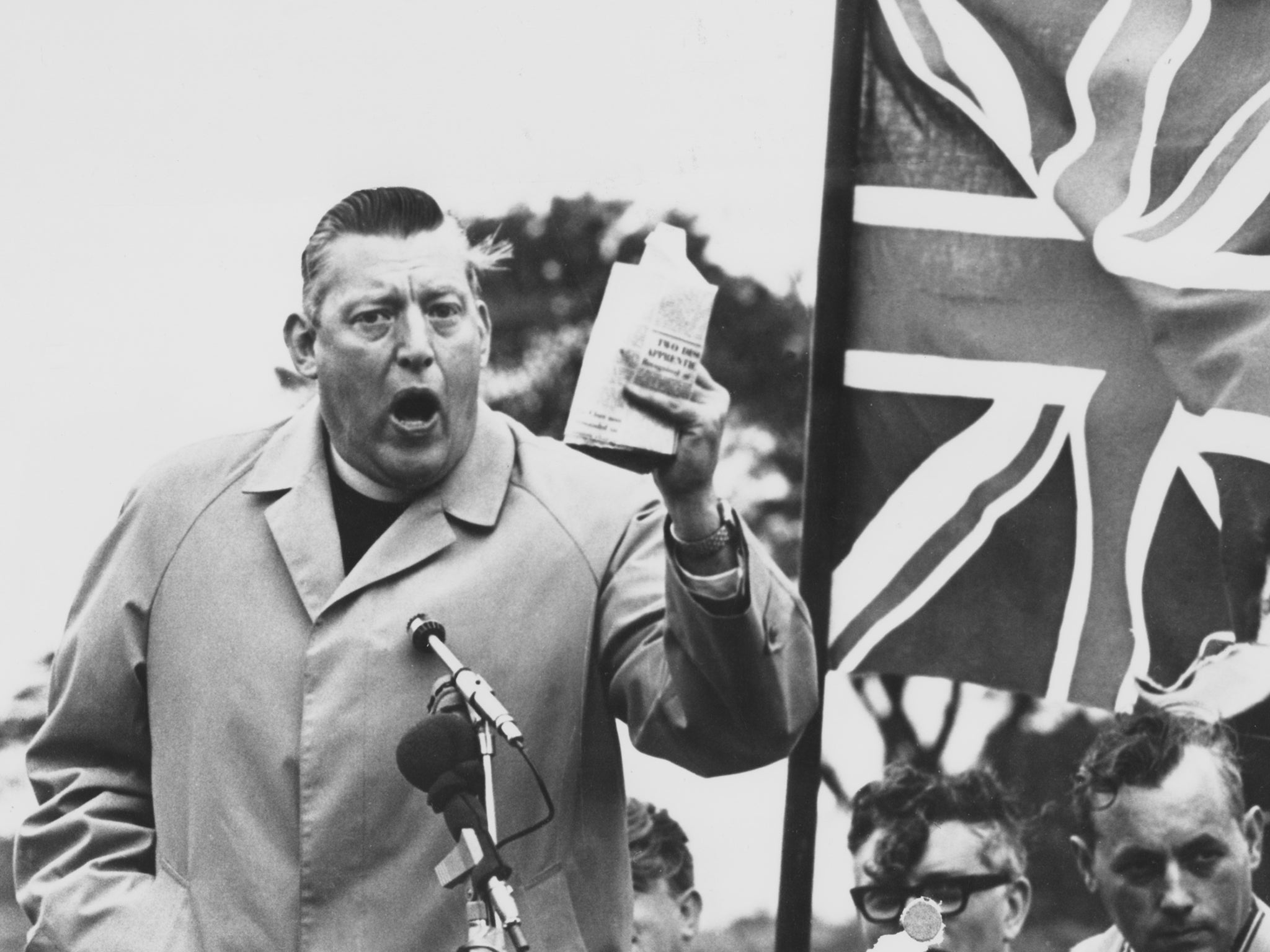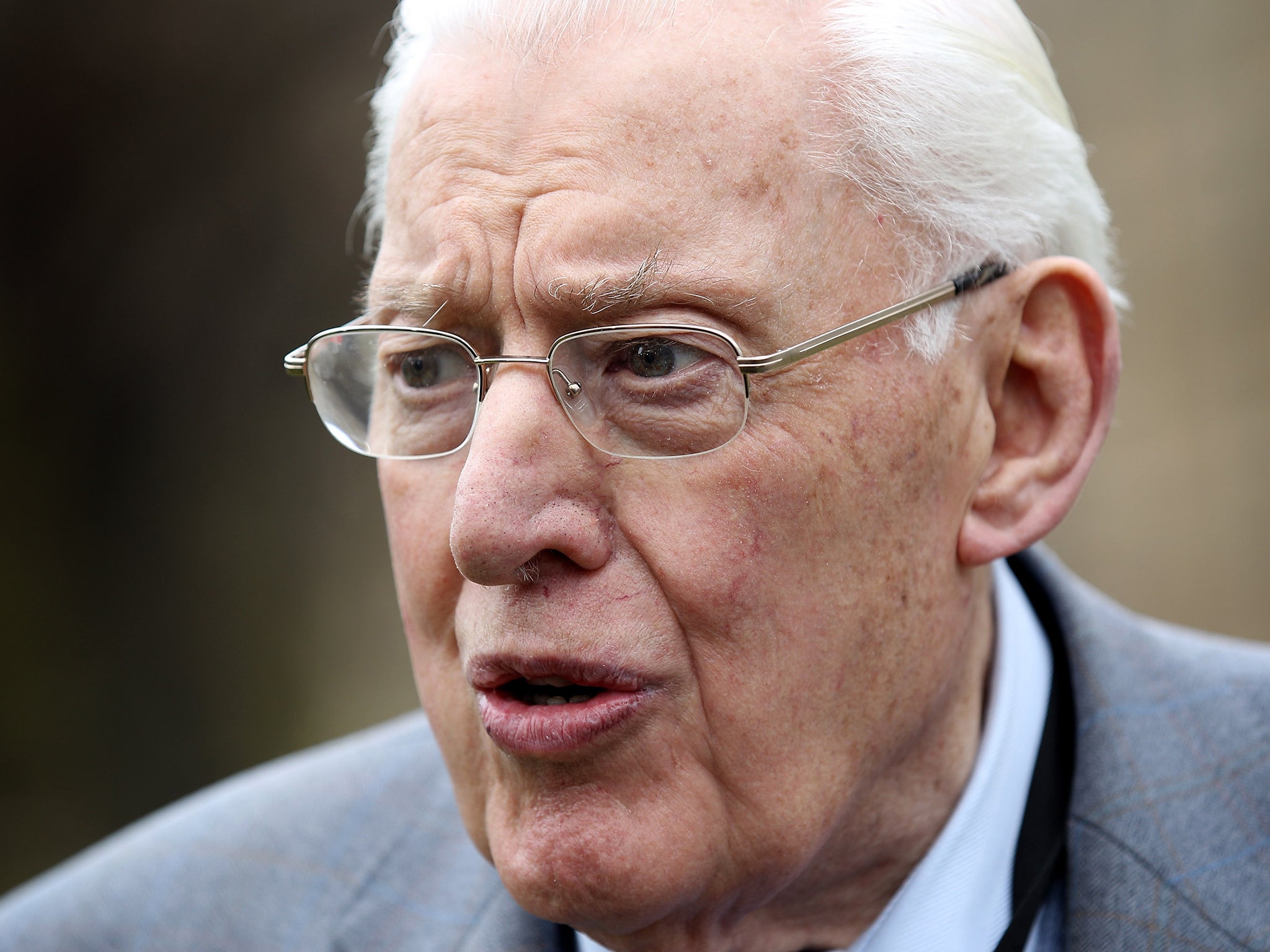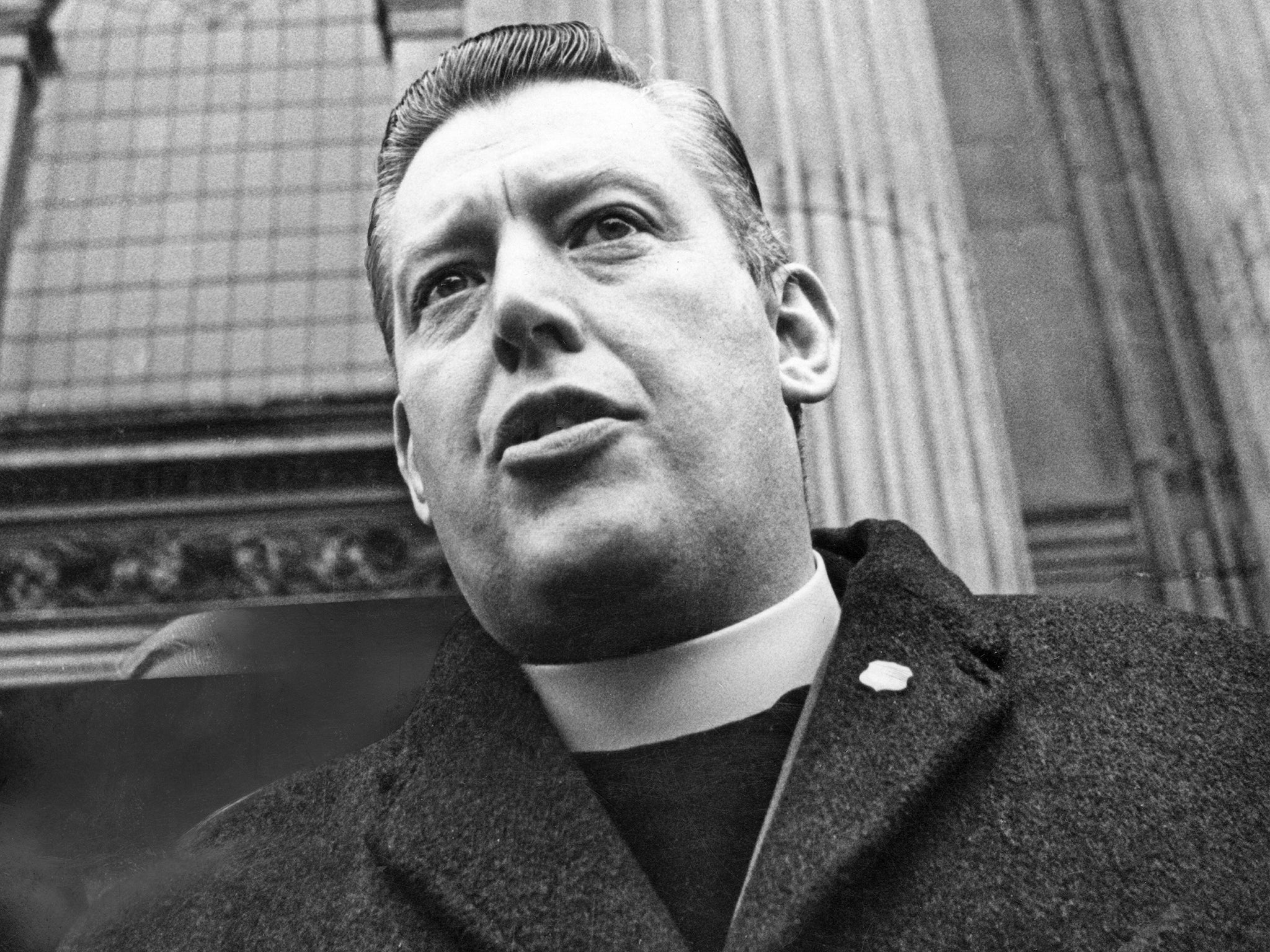Ian Paisley: From fire and brimstone to a peace once thought impossible
My grandmother would have been stunned at his remarkable journey

Your support helps us to tell the story
From reproductive rights to climate change to Big Tech, The Independent is on the ground when the story is developing. Whether it's investigating the financials of Elon Musk's pro-Trump PAC or producing our latest documentary, 'The A Word', which shines a light on the American women fighting for reproductive rights, we know how important it is to parse out the facts from the messaging.
At such a critical moment in US history, we need reporters on the ground. Your donation allows us to keep sending journalists to speak to both sides of the story.
The Independent is trusted by Americans across the entire political spectrum. And unlike many other quality news outlets, we choose not to lock Americans out of our reporting and analysis with paywalls. We believe quality journalism should be available to everyone, paid for by those who can afford it.
Your support makes all the difference.My grandmother, a staunch Belfast Protestant, utterly adored Ian Paisley, proudly keeping a framed photograph of him and his wife Eileen cradling their new-born twin sons, on her Shankill Road wall.
The two boys both followed in their father’s footsteps: Ian Jr is today an MP in the party he set up, while Kyle is a minister in the church he founded.
Paisley had other followers back then in the 1960s, but they tended to be confined to traditional, hardline working-class areas such as the Shankill.
It was not exactly a golden age, but it was a time of lessening tensions and an improving political and social atmosphere, with talk of better Protestant–Catholic relations.
Ian Paisley opposed all this every step of the way, in the most dramatic and uncompromising terms. His speeches potently combined politics and religion, warning against any idea of concessions to the twin foes of nationalism and Catholicism.
His rallies sent pulses racing: many of the people streaming away from them had faces shining with excitement, his demagoguery having exhilarated and terrified them with his dire warnings that the IRA and Rome were both out to get them.
A senior English clergyman once described his fire-and-brimstone histrionics as religious cabaret.
The Catholic church was stronger then, but there wasn’t much of an IRA. Looking back, many have wondered whether the Paisley rhetoric helped create the conditions for its growth into such a fearsome terrorist organisation.
Certainly Gerry Adams of Sinn Fein has written that one of his earliest political experiences was observing a riot which followed some Paisley bombast. Adams wrote of “rallies at which Paisley bellowed forth a message of virulent religious hatred”.
In those early days the preacher was regarded as being beyond polite society, well beyond the pale: the middle class scoffed at him as a variant of Vincent Price playing Dracula.

While his conduct thrilled his Protestant faithful, it had a very different effect on many nationalists. A Protestant minister, the Rev William Arlow, once confided he had asked IRA leader Daithi O Conaill about a rumour the IRA might try to kill Paisley. He recalled: “O Conaill just simply told me, ‘There’s no way we would kill Ian Paisley. Paisley is the best recruiting sergeant we’ve got’.”
The clergyman related O Conaill saying: “When they hear him, a chill goes down the spine of every Catholic in west Belfast. And after that we have no trouble getting volunteers, safe houses and money.’”
While Paisley was perversely useful to the IRA, he was absolutely loathed by all those who over the years pursued the idea of an agreed settlement.
A score or more of Northern Ireland Secretaries came and went from Belfast, some of them trying hard to find an accommodation. The local centrist parties all favoured some form of powersharing, but they and British ministers were repeatedly thwarted by the twin obstacles of Paisley and the IRA.
Violence – from loyalists as well as republicans - poisoned the atmosphere, and so did Paisley’s absolute insistence that no deal could be done with nationalists, Catholics and above all republicans. In effect he exercised a veto on compromise.

This meant that the troubles dragged on for decades, taking many lives and making Northern Ireland a byword for endless violence and perpetual disagreement.
The first cryptic signs that something might change came from the republican and nationalist side, where the rhetoric changed although the bombing continued. Paisley watched this with keen interest but for years gave no indication that he might be prepared to move.
But his position became steadily stronger as his Democratic Unionist Party gradually overtook the main Ulster Unionist party, establishing itself as the strongest Protestant voice. At this point a new approach became theoretically possible, since his new strength meant that his would not just be one face among four or five in any new administration, but the leader of the pack.
Still, his years of implacable negativity made it seem impossible that he would do a deal, especially since the numbers meant he would be going into government with Sinn Fein.
This was the party he had vowed to destroy, with election posters featuring himself wielding a large sledgehammer over the slogan “Smash Sinn Fein”.

The very idea of a Paisley-Sinn Fein government was therefore unthinkable – until the very moment when cameras were allowed into a Stormont committee room to show Paisley and Gerry Adams, the ancient foes, sitting at the same table.
Everyone gaped in amazement as they announced they had reached agreement on forming a powersharing government, headed by their two parties and including others. Paisley would be First Minister, with Martin McGuinness of Sinn Fein – an acknowledged former member of the IRA - as his deputy. It was the realisation that he would hold the top job, that an agreement with his foes would allow him to be Number One, that led him to accept the previously unthinkable.
The astonishment grew as the two old warriors of the troubles developed not just a working relationship but an actual genuine friendship. In the couple of years that followed a completely new Paisley emerged: a leader readily prepared to let bygones be bygones and leave the past behind.
As First Minister he did not bother much with actual administration, instead embarking on a sort of lap of honour taking in places which had always disapproved of his previous record. He was feted in Dublin and Washington and elsewhere, no longer the man who gloried in conflict but instead, suddenly, an internationally acknowledged peacemaker. My grandmother would have been stunned at his remarkable journey.
Join our commenting forum
Join thought-provoking conversations, follow other Independent readers and see their replies
Comments